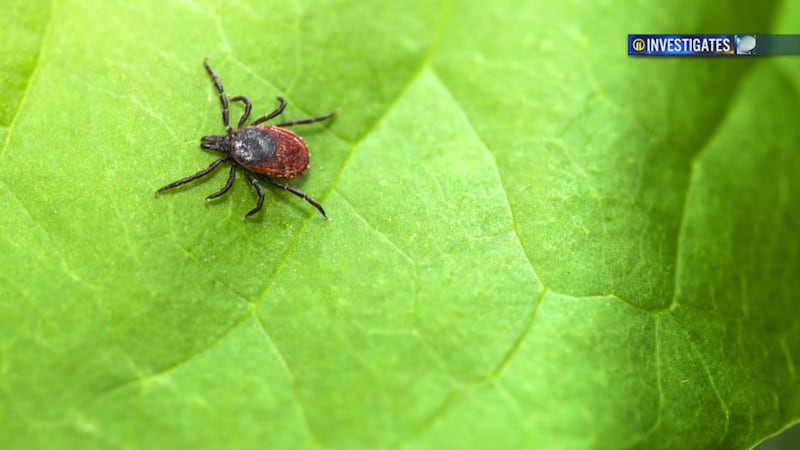As we head into the summer months, there are growing concerns about tick bites. Channel 11 reached out to a bug expert from Penn State to find out what people need to know to protect themselves this tick season.
Dr. Michael Skvarla is an Insect Identifier and Extension Educator at Penn State's Entomology Department. We asked him if we should expect more ticks this summer. He said the short answer is we just don't know yet.
"There's no long-term data set I'm aware of that would allow us to compare black-legged tick densities to weather," Skvarla said.
RELATED STORY: The impact of Lyme disease in Pennsylvania
He said even though this winter was cold, ticks in Pennsylvania and the rest of the Northeast have adapted to the cold temperatures. The black-legged tick populations are more likely correlated with population changes of their hosts, like white-footed mice and white-tailed deer.
He said the populations of ticks in Pennsylvania are going up, because people are creating the type of habitats their hosts thrive in.
"As humans have chopped down forests and fragmented the landscape, we've created more edge habitat, so there are more mice and deer," he said.
This is where you are most likely to find ticks, near the edge of forests.
"Overgrown grassy fields can also support large mice populations, so can have high tick populations," he said.
RELATED STORY: Expert offers tips on how to keep ticks off your property
With so many areas like this across the Pittsburgh area, Channel 11 asked what people could do to prevent tick bites.
"Ticks need to find an open area of skin to bite, so tucking pant legs into tall socks forces ticks to crawl up your pants rather than up your legs under your pants," he said. "This will increase the time it takes a tick to find a suitable place to bite and increase your chances of finding a tick before it bites."
If the tick does bite, he recommends removing the tick and then going to the doctor, just to be safe. It can take up to a month for a tick bite to lead to symptoms, and the telltale bulls-eye rash doesn't always develop as a sign.
"It's good practice to be watchful for any flu-like symptoms that develop after a tick bite and to immediately see a doctor if they do," he told us. "Other diseases, such as Rocky Mountain spotted fever, can be lethal if not treated."
He also recommended applying DEET before heading outdoors. He said 25-percent DEET is sufficient as a repellent to ticks.
For your pets, Skvarla said to make sure they are on flea and tick control. This will help ensure the ticks don't drop off your pet indoors and lay eggs.
"It's also a good idea to comb and check pets after outdoor activities," he said.
Cox Media Group








